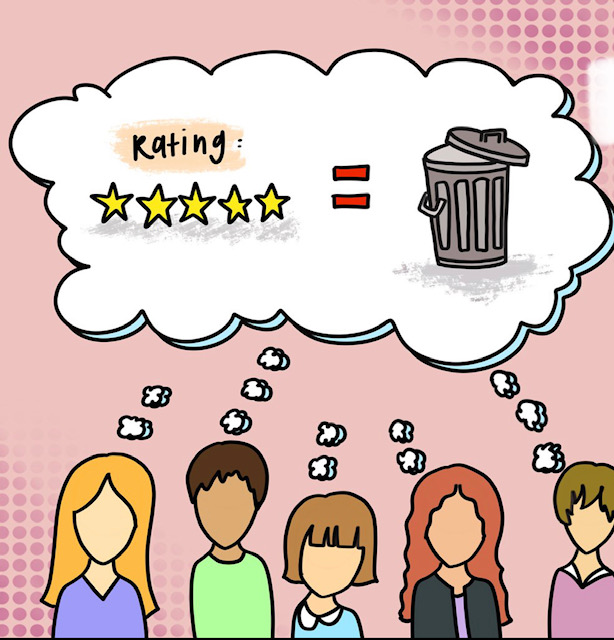‘Haters are going to hate,” but honestly should they?
As topics rise in popularity, they become easy targets for unjustified hate.
February 28, 2022
If you’re on the internet at all, you’ve probably heard about that movie everyone’s raving about, or the album from that artist who just skyrocketed to fame. Maybe it’s the innovative food trick that all your friends are trying out, or even that earworm of a TikTok audio that seems to pop up every other time you scroll. Whatever it might be, it’s undeniable that trending topics have all but taken over our internet experiences. Currently, however, it feels like hating popular things has become a trend all on its own.
As trends rise and fall, there (almost always) arrives a point where it feels like more people are vocal about hating the item in question than loving it. Everyone is absolutely entitled to having their own opinions, and some genuine criticism is always warranted, even for the most well-liked of things. But as trends rise in popularity, and exposure, it opens up the gates to bandwagon hate. That is, hating on something for no real reason — only because other people are doing it.
Popular things are, without a doubt, the perfect target for this kind of negativity. Sometimes, it feels as if you can’t go ten minutes without being reminded of the newest trend that has the world in a vice-like grip. This fosters resentment or annoyance, which ends up translating to frustration-fueled hatred.
The reason this mentality is so harmful is because once something becomes “too” popular, fans of the item in question end up being scorned. You might have heard the word “basic” being thrown around as an insult, used in the same way as “unoriginal” or “boring”. People who follow (and enjoy) trends are deemed to be basic — shamed for liking what they enjoy, even if it’s something as harmless as a drink or a clothing style.
When you think about it, it might feel like disliking something that’s popular is counterintuitive. Surely it doesn’t make sense to contradict everyone else — in the end, isn’t it human nature to want to fit in? But actually, research is showing that this isn’t the case. In a 1977 experiment, psychologists Brehm and Weintraub asked 2-year-old children to choose between an easily accessible object and one that was behind a barrier. The children consistently reached for the one that was harder to access. As the study implies, rebelliousness is almost “coded” into us. Of course, not everyone has the bravery to break the law or start a revolution. But for most people, loudly expressing displeasure of something the rest of the world loves is just enough.
Inherent unruliness aside, there are several other possible reasons for why hating on popular things is, well, popular. For some, it could be a grab at attention — often effective, because what causes a stir more than a contrary opinion? In other cases, it could be a display of dominance or superiority, a little boost of self-esteem that comes from being “different”. In this age, to be cynical seems to be directly associated with being cool.
We all like to believe we’re unique, that we’re special for thinking differently from the rest of the world. As Brehm and Weintraub confirmed, however, everyone thinks that way to some extent. It’s in our nature, meaning there’s nothing unique about it at all. This idea is perfectly illustrated by this XKCD comic, in which multiple people share a thought bubble that declares that they aren’t “part of the herd”, so to speak.
In fact, the very idea of rebellion could lead back to the larger human desire of wanting to be part of a group. Rebellion isn’t so much wanting to be different as wanting others to side with you. As Richard M. Billow puts it, “it is useful to think of group process and rebellion as an attempt to move the group in a different direction.”
Further, people who aim to set themselves apart by rejecting popular ideas still don’t manage to stand out as much as they want — especially now, when there seems to be increasingly large groups of people intent on taking down things that are popular. “We may feel like we’re breaking away from mainstream ideas with our ‘unique’ take on a given situation, but all we’re doing is shifting our ideas to that of another group,” says Lawrence Yeo in an article on Human Parts. “That group may feel exciting and special, but it’s a group nonetheless.”
When these reasons are picked apart, it’s clear that it hardly makes sense to hate on popular things simply because they’re popular. Being well-liked and well-known doesn’t undermine an item’s quality — in fact, it proves the opposite. Mainstream ideas will always be present, and so will all the loudly conflicting opinions surrounding them. Instead of tuning into the background noise, it’s far more important to focus on what you like — and to let others do the same.






